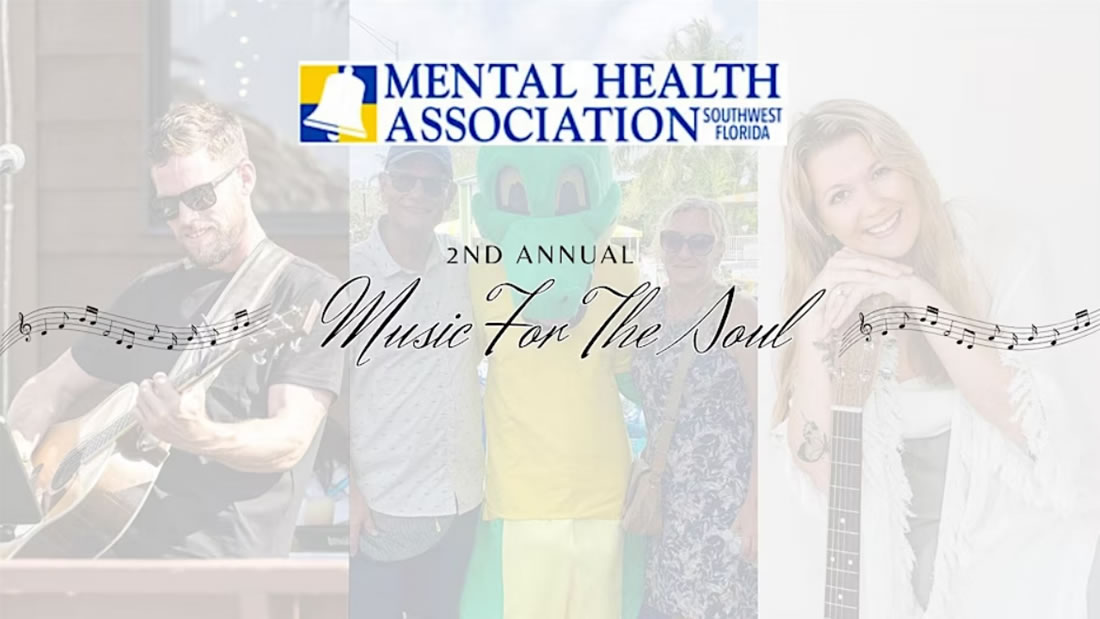As a parent, understanding the signs that your teenager might be struggling with thoughts of suicide can be challenging, yet it’s essential for their well-being. Mental Health Awareness of SW Florida (MHASWFL) is dedicated to providing support and resources for families in need. Here’s a guide on what to look for and how to approach the situation if you suspect your teen is having suicidal thoughts.
Top 10 Signs Your Teenager Might Be Having Suicidal Thoughts
- Changes in Mood: Sudden mood swings, persistent sadness, or expressions of hopelessness.
- Withdrawal from Friends and Activities: Loss of interest in activities they once enjoyed and isolation from friends and family.
- Changes in Eating and Sleeping Habits: Significant changes in appetite or sleep patterns, such as insomnia or oversleeping.
- Decline in Academic Performance: A noticeable drop in grades or a lack of interest in school.
- Talking About Death or Suicide: Any mention of death, dying, or self-harm should be taken seriously.
- Risky or Reckless Behavior: Engaging in dangerous activities without concern for consequences.
- Substance Abuse: Increased use of alcohol or drugs.
- Giving Away Belongings: Distributing personal items or talking about who will inherit their possessions.
- Physical Symptoms: Complaints of unexplained aches and pains, which can be a manifestation of emotional distress.
- Expressions of Guilt or Worthlessness: Frequently talking about being a burden to others or feeling trapped.
How to Approach Your Teen
If you suspect your teen is having suicidal thoughts, it’s crucial to approach them with empathy, understanding, and without judgment. Here are some steps to take:
1. Create a Safe Environment
Ensure your home is a safe space where your teen feels comfortable expressing their feelings. Remove any objects that could be used for self-harm.
2. Choose the Right Moment
Find a quiet, private moment to talk. Avoid times when either of you is likely to be stressed or distracted.
3. Express Your Concern
Start the conversation by letting your teen know you’ve noticed changes in their behavior and that you’re concerned about their well-being. Use “I” statements to avoid sounding accusatory. For example, “I’ve noticed you’ve been very quiet lately, and I’m worried about you.”
4. Listen Without Judgment
Give your teen the opportunity to talk about their feelings. Listen carefully and don’t interrupt. Validate their emotions by acknowledging their pain without minimizing it.
5. Ask Direct Questions
It’s okay to ask directly about suicidal thoughts. You might say, “Have you been thinking about hurting yourself?” Research shows that asking about suicide does not increase the risk; instead, it opens up communication.
6. Offer Reassurance
Let your teen know that they are not alone and that help is available. Reassure them that you are there to support them no matter what.
7. Seek Professional Help
Professional assistance is crucial for teens dealing with suicidal thoughts. Reach out to MHASWFL for guidance and resources.
Getting Professional Assistance
MHASWFL offers programs specifically designed to support teens and their families through mental health challenges. Our member directory includes specialists who are experienced in addressing adolescent mental health issues. If you believe your teen needs professional help, do not hesitate to contact us. Our experts can provide the necessary support and treatment to navigate this difficult time.
Contact Information
For more information about our programs and to connect with a specialist, contact us online or call us at (239) 261-5405.
Emergency Situations
If your teen is in immediate danger, do not leave them alone. Call 911 or go to the nearest emergency room right away.
Moving Forward & What To Consider
Recognizing the signs of suicidal thoughts in your teenager and knowing how to respond can make a significant difference in their life. By approaching them with compassion and seeking professional help, you can provide the support they need. MHASWFL is here to help you every step of the way with a range of programs and expert resources dedicated to mental health awareness and support in Southwest Florida.




 Join us on Saturday, April 12th from 12:30pm to 4pm for Music for the Soul, our 2nd annual music event at Celebration Park. We'll be featuring local music talent – Brad Allison Band and Maddie Hilton, as well as auction items ranging from a Vespa and artwork, to hotel night stays and a spa experience. This is a FREE event. Proceeds from the event will allow the organization to continue to offer services such as the Gollee Gator Children's Mental Wellness program, veterans support services and Senior Mental Health Chat to the community free of charge. In addition, the MHA will continue our advocacy and educational programs. One hundred percent of the proceeds from this event benefit the Mental Health Association of Southwest Florida, a 501 c(3), not-for-profit organization.
Join us on Saturday, April 12th from 12:30pm to 4pm for Music for the Soul, our 2nd annual music event at Celebration Park. We'll be featuring local music talent – Brad Allison Band and Maddie Hilton, as well as auction items ranging from a Vespa and artwork, to hotel night stays and a spa experience. This is a FREE event. Proceeds from the event will allow the organization to continue to offer services such as the Gollee Gator Children's Mental Wellness program, veterans support services and Senior Mental Health Chat to the community free of charge. In addition, the MHA will continue our advocacy and educational programs. One hundred percent of the proceeds from this event benefit the Mental Health Association of Southwest Florida, a 501 c(3), not-for-profit organization.